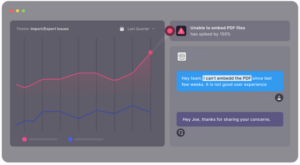The Series-A round was backed by venture capital funds IvyCap Ventures and Endiya Partners, and saw participation from Y Combinator, and other angel investors too
Synapsica provides an AI driven software platform – Radiolens – that hosts multiple AI algorithms that make Radiology diagnostic workflows smoother by automatically detecting bad quality scans and creating preliminary reports
India’s healthtech market is rapidly growing and is estimated to reach $21 Bn in 2025.

Synapsica Healthcare has raised $4.2 Mn funding in its Series-A funding round led by venture capital funds IvyCap Ventures and Endiya Partners. The funding round also saw participation from Silicon Valley-based incubator Y Combinator, and other angel investors.
Founded by Meenakshi Singh, Dr Cherian and Kuldeep Singh Chauhan in 2018, the company is creating India’s first integrated platform to use AI for automation of both clinical and back-office tasks in radiology. It also aims to improve the quality of radiology reports while making it easier for doctors to create them.
As per the funding announcement, the company will use the newly acquired capital for overseas growth and to further expand the suite of AI features that help Radiologists and spine specialists create patient reports quickly, or even in real-time at the table side.
Commenting on the investment, Vikram Gupta, founder and managing partner, IvyCap Ventures Advisors Pvt Ltd, said, “There is a constant need to make quality diagnostic assessment available for all. Synapsica with its AI tools helps in creating patient reports quickly. Our investment in the company is aimed at helping them in their expansion and growth.”
Synapsica’s platform – Radiolens, enables radiologists and clinicians to put together reports with illustrations and objective evidence of disease bringing transparency and hence brings in better patient care to the community. Radiolens hosts several AI based algorithms that assist radiologists to describe the exact location and extent of spine-related pathologies. With the increasing incidence of chronic lower back and neck pain among the aged and working professionals, reports generated on Synapsica’s platform help both patients and clinicians really understand the patient’s condition and create a customised treatment plan.
“We are obsessed with radiologist’s experience on our platform, and direct our research and tech development to create the best possible environment for clinical diagnosis. This means taking away all mundane tasks – button clicks, measurements, repetitive diagnosis – and giving back time to focus on the patient,” said Meenakshi, CEO, Synapsica Healthcare.
The company claims to work with over 250 doctors across more than 500 hospitals and diagnostic centers and is gaining more partners everyday.
“We firmly believe that the time for AI in Healthcare is here. Radiology in particular, with an already existing digital image workflow, will see faster adoption of AI which will add to both the precision in diagnostics as well as improve accessibility on the patient care front. Synapsica’s products work seamlessly together, to provide a complete augmented radiology experience with objective and predictive reporting. At Endiya Partners, we are excited to partner in Synapsica’s journey to empower radiologists through AI-led reporting, a much-needed intervention in Healthcare” said Dr Ramesh Byrapaneni, Endiya Partners.
According to Inc42 Plus, India’s healthtech market is estimated to reach $21 Bn in 2025. The development in Indian healthcare infrastructure will be led by homegrown healthtech startups, with telemedicine and online pharmacies leading the current wave of startups. Together, the Indian healthtech market will contribute $21 Bn by 2025, which is still only 3.3% of the total addressable healthcare market which is pegged to reach $638 Bn in 2025. This indicates that the room for growth is pretty high and healthtech has a massive opportunity here.
While the lack of regulatory guidelines and shortage of tech-based healthcare infrastructure are some of the major factors behind the low funding in the healthtech industry, the government’s decision to release telemedicine guidelines early on during the lockdown has helped bring some much-needed clarity to this segment. This is expected to attract more investors to invest in this sector. Regulatory guidelines in healthcare data and analytics will also help create more startups and innovation to improve healthcare quality and access.
Get Expert Insights With Over 50 Industry Leaders At
The D2C Summit! Claim 50% + 25% OFF Today!










